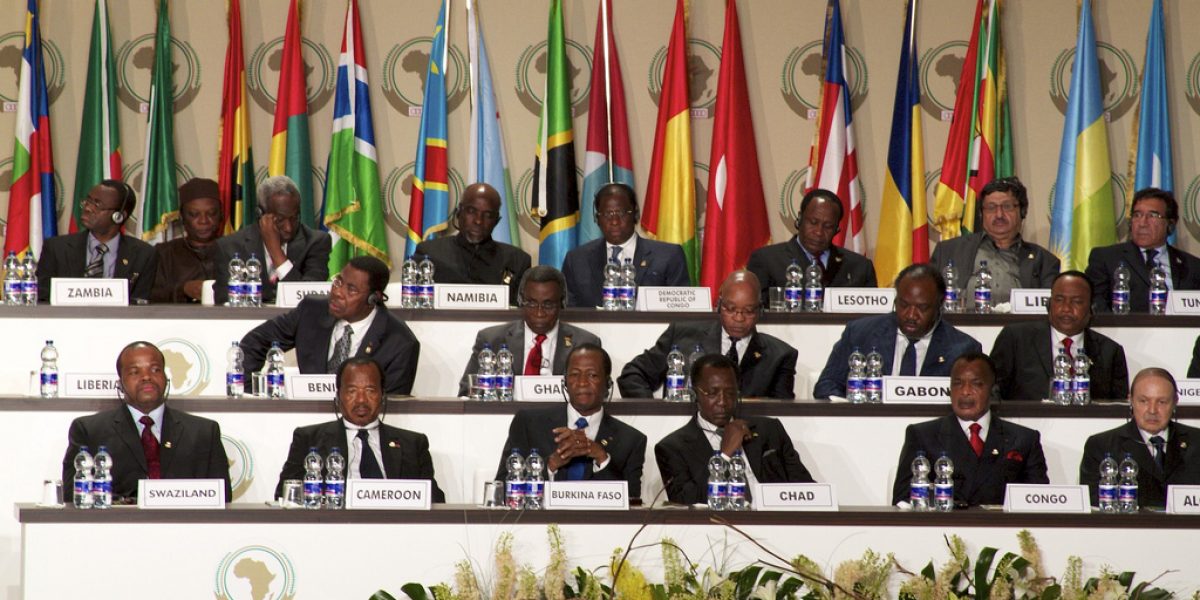While they commendably resolved to send peace missions to Cote d’Ivoire and Congo, and made cogent recommendations on the Darfur conflict, they missed opportunities to exercise a crucial function of parliaments: that of oversight. The PAP was launched in an era where leaders have vowed to improve governance and alleviate poverty in Africa. Its members can use their platform to demand that governments deliver on this promise by investigating and publicizing poor management at both continental and national levels. Oversight can make the vital difference between an effective parliament and an assembly of talking heads who do little more than endorse executive decisions. Although the fledgling parliament has no legislative power during its early years, it can debate issues of continental import and make recommendations to the African Union Commission and the Heads of State.
Among the key issues on the agenda for this session of the PAP was the African Peer Review Mechanism (APRM), a voluntary appraisal of national governments’ economic and political management performance by their fellow Africans. Ghana’s country visit, the first out of 24 countries that will be rated by the APRM, coincided with the PAP sitting. The assembly did debate the issue, passing a resolution to use national parliaments ‘to urge their governments to accede to APRM as a demonstration of their commitment to democracy and good governance in Africa’.
But the PAP did not go as far as it could. The APRM requires that each country’s review report and recommended plan of action be publicly tabled in the PAP. At every successive sitting, the PAP should compel MPs from APRM countries to report on their government’s progress in implementing the national action plan in the five-year period between reviews.
Courageous national legislatures have illustrated the authority that parliaments who choose to exercise their oversight role can wield. Even in instances where leaders refuse to follow through on investigations initiated by parliaments, the publicity generated by such investigations has led to civic pressure on the executive and ultimately contributes to more accountable governance. The PAP should scrutinize the budgets of AU organs such as the AU Commission and the Peace and Security Council, and make recommendations to streamline bureaucracies, reduce wastage and improve efficiency.
Of course, this presupposes that PAP members will have the ‘temerity’ and bravery to engage with issues that may discomfit executives and potentially embarrass presidents who misuse their country’s resources. The PAP passed resolutions commending the AU’s prevention of an unconstitutional takeover of power in Togo, but was conspicuously silent on widely-reported abuses of election guidelines in Zimbabwe’s March election, failing to challenge transgressions that are backed by many African governments.
The mechanism by which MPs are selected to represent their countries in the PAP merits scrutiny. If PAP parliamentarians are intended to represent their nation’s citizens, MPs from countries such as Uganda, to all intents a one-party state, surely lack credibility. Libyan MPs are even less representative of their population, as Libya has no national assembly. Yet the PAP elected a Libyan as its vice president for North Africa, symbolically endorsing an undemocratic government. Even South Africa, with a relatively robust multi-party democracy, has been criticized for failing to include a member of the official opposition in its PAP delegation.
The PAP has had over a year in which to set up structures, nominate office bearers and organize itself. It’s time to focus on pertinent issues that can improve governance in Africa.
If the PAP is to evolve into more than a talk-shop, the elected representatives of states with better records of democracy must dare to raise the level of debate. The PAP courageously risked the Sudanese government’s displeasure by recommending disarmament of the Janjaweed militia in Darfur, and must now muster the nerve to challenge other transgressions of Africa’s governance and human rights standards. MPs at both national and continental levels can use the APRM to transform their role from ‘rubber-stamping’ of executive decisions to steering the governance agenda in the interests of citizens. Unless they rise to this challenge, the continental parliament will be lumbered with comparisons with South Africa’s staple food – the soft and malleable pap.








